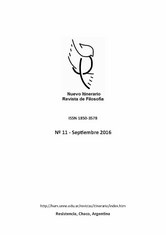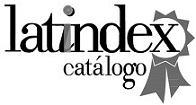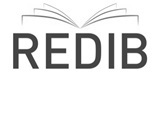Mediated happiness and digital well-being
DOI:
https://doi.org/10.30972/nvt.0101703Keywords:
Mediated Happiness, Digital Well-BeingAbstract
The king sat on one end of the scale and the other end was filled with gold until a balance was reached. The king’s worth was measured by his weight in gold. Presumably, this made him happy. He said that the gold on the opposite end of the scale made him happy, but we only have his word and monarchs are famously devious. In any case, whether the king said he was happy and even truly believed that he was happy when he said he was happy is beside the point. The point is: Was he really happy?
References
Bruckman, Amy. “Gender Swapping on the Internet.” Technology and Science. Ed. Dianne Fallon. Madison, WI: Coursewise Publishing, 1999. 100-103.
Gelder, Tim van. Wooden Iron? Husserlian Phenomenology Meets Cognitive Science. Spring 1996. 2 Aug. 1997. http://www.phil.indiana.edu/ejap/1996.spring/vangelder.1996.spring.html
Heim, Michael. Virtual Realism. New York: Oxford University Press, 1998.
Husserl, Edmund. Cartesian Meditations. Trans. Dorion Cairns. The Hague, Netherlands: Martinis Nijhof, 1969.
—. The Paris Lectures. Trans. Peter Koestenbaum. The Hague, Netherlands: Martinus Nijhof, 1967.
—. The Crisis of European Sciences and Transcendental Phenomenology. Evanston, Illinois: Northwestern University Press, Kurzweil, Ray. The Age of the Spiritual Machine. New York: Viking, 1999.
—. Formal and Transcendental Logic. Trans. Dorion Cairns. The Hague, Netherlands: Martinus Nijhof , 1969.
—. Ideas: General Introduction to Pure Phenomenology. Trans. W. R. Boyce Gibson. London: Collier Books, 1969.
—. Ideas Pertaining to a Pure Phenomenology and to a Phenomenological Philosophy. Trans. Richard Rojcewicz and Andre Shuwer. Dordrecht: Kluwer Academic Publishers, 1989.
—. Ideas Pertaining to a Pure Phenomenology and to a Phenomenological Philosophy. Trans. by Richard Rojcewicz and Andre Schuwer. Dordrecht, Netherlands: Kluwer Academic Publishers, 1998.
—. Ideas Pertaining to a Pure Phenomenology and to a Phenomenological Philosophy. Trans. R. Rojcewicz and A. Schuwer. Kluwer Academic Publishers, 1993.
Ihde, Don. Technology and the Lifeworld: From Garden to Earth. Bloomington, Indiana: Indiana University Press, 1990.
Kurzweil, Ray. The Age of the Spiritual Machine. New York: Viking, 1999.
Marx, Karl. Capital. Trans. Samuel Moore and Edward Aveling. New York: International Publishers, 1947.
—. A Contribution to the Critique of Political Economy. Peking: Foreign Language Press, 1976.
—. The Eighteenth Brumaire of Louis Bonaparte. Peking: Foreign Language Press, 1978.
—. The German Ideology. Collected Works. Vol. 5. New York: International Publishers, 1976.
Majkut, Paul. “The Monster in the Maze: A Phenomenological Glimpse at the Aesthetics and Ontology of Cyberspace,” Proceedings: Conference on the Visual Arts in the Context of the XX Century, Kiev, Ukraine, June, 2000.
—. “The Selflessness of Transcendental Deception,” Deception: Essays on Deception. Zeta Books. Bucharest, Romania, August, 2010. 175-198.
Michals, Debra. “Cyber-Rape: How Virtual Is It?” Technology and Science. Ed. Dianne Fallon. Madison, WI: Coursewise Publishing, 1999. 98-99.
Stein, Edith. On the Problem of Empathy. Trans. by Waltraut Stein. Washington, D. C.: ICS Publications, 1989.
Trebilock, Bob. “Child Molesters on the Internet: Are They in Your Home?” Technology and Science. Ed. Dianne Fallen. Madison, WI: Coursewise Publishing, 1999. 46-50.
Turkle, Sherry. “Is the Net Redefining Our Identity?” Technology and Science. Ed. Dianne Fallon. Madison, WI: Coursewise Publishing, 1999. 98-99.
—. “Who Am We?” Who Are We? Ed. Rise B. Axelrod and Charles Cooper. New York: St. Martin’s Press, 1997. 51-56.
Wieseltier, Leon. “Among the Disrupted,” The New York Times, Sunday Book Review, January 7, 2015.
Wilson, Gary (Colonel (Retired), United States Marine Corps, Carlsbad, California.) “Perspective on Neurolinguistic Programming (NLP).” The Police Chief: The Professional Voice of Law Enforcement.<http://www.policechiefmagazine.org/magazine/index.cfm?fuseaction=display_arch&article_id=2268&issue_id=122010>
Downloads
Published
How to Cite
Issue
Section
License
Les autores ceden a Nuevo Itinerario los derechos de publicidad de sus trabajos, toda vez que hayan sido admitidos como parte de alguno de sus números. Ello no obstante, les autores retienen los derechos de propiedad intelectual y responsabilidad ética así como la posibilidad de dar difusión propia por los medios que consideren.












51.jpg)

